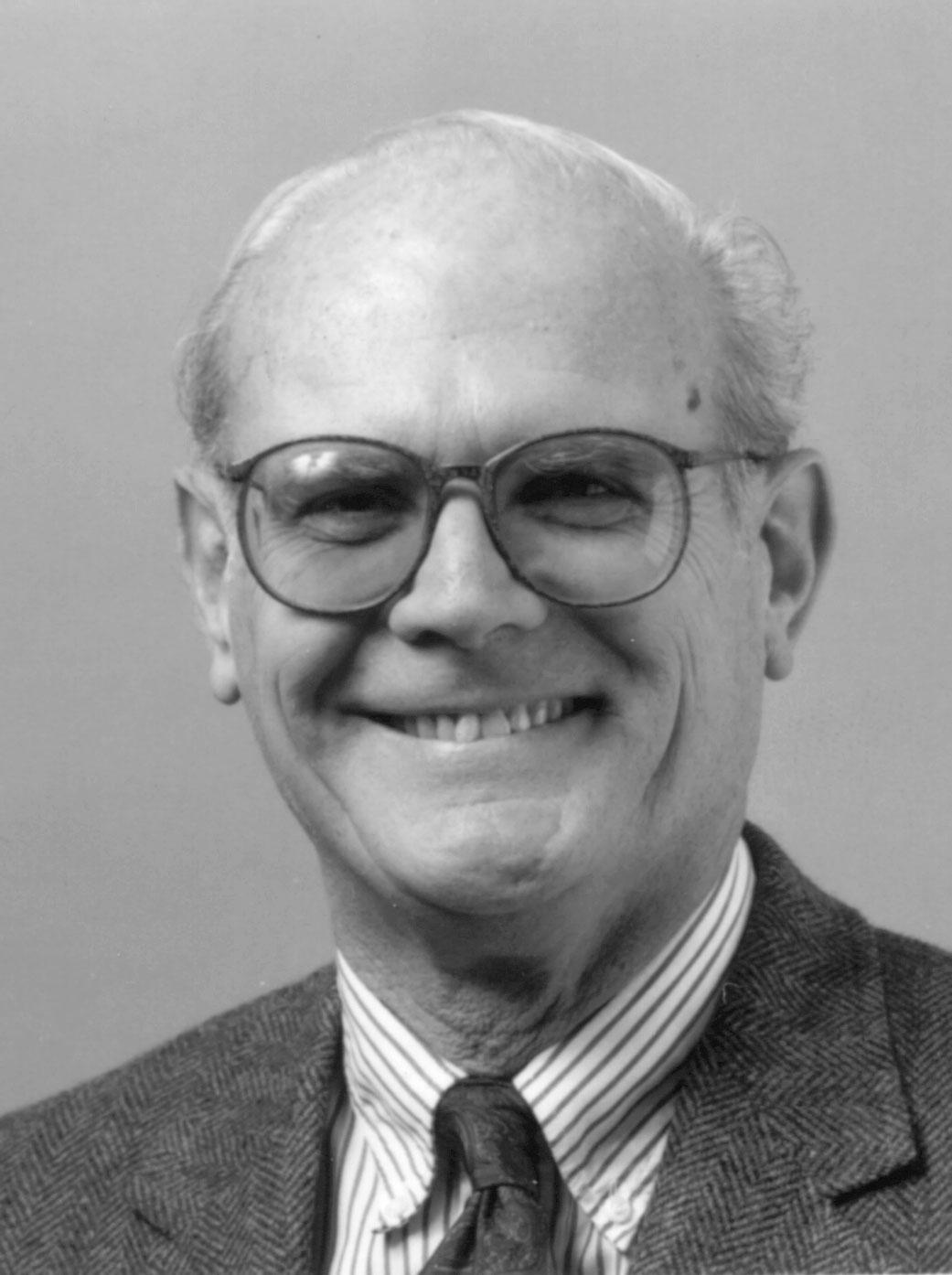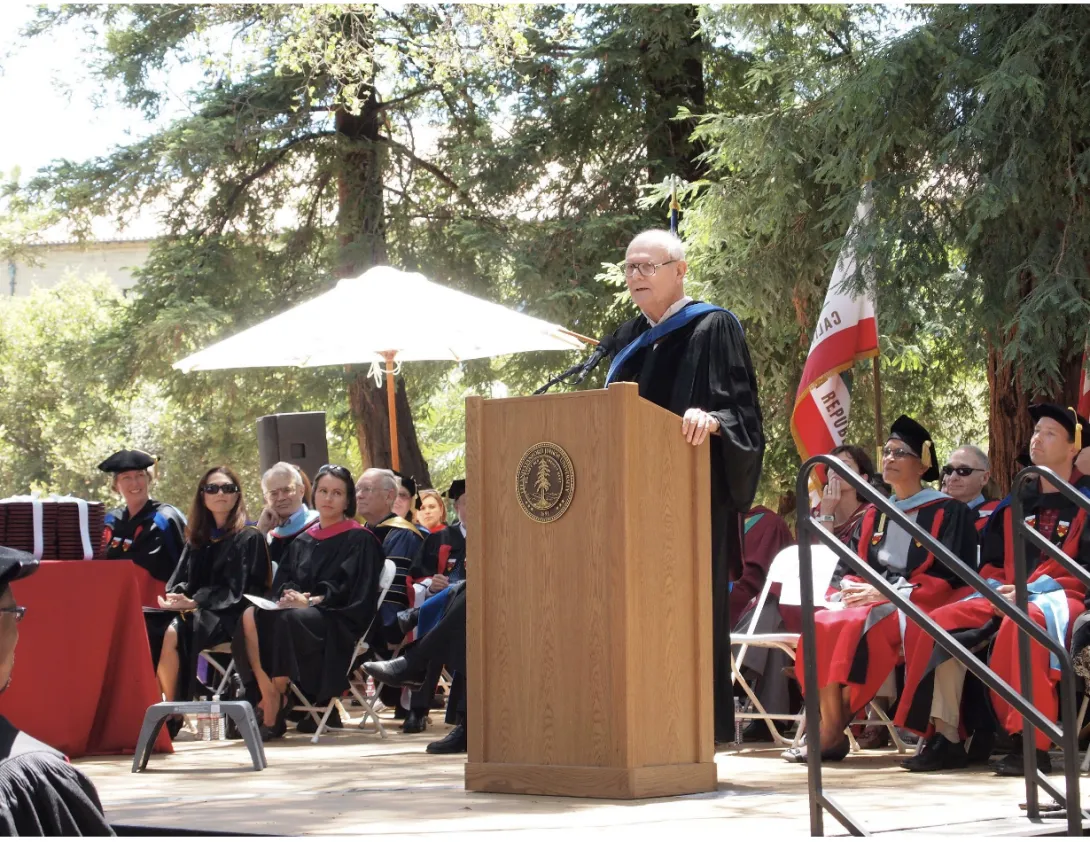
Remembering Professor Edwin Bridges
Edwin M. Bridges, retired professor of education best known for applying problem-based learning to the training of educational leaders, has died. He was 85.
Bridges died March 7 at his home on the Stanford campus.
Bridges came to Stanford Graduate School of Education in 1974. He founded the school’s Prospective Principals’ Program, which for roughly a decade used realistic simulations to help future leaders build management and organizational skills.
Himself a former principal, Bridges worked to strengthen what he saw as a weak link in K-12 education: supervisors resourceful and resilient enough to help teachers grow.
The program attracted a broad range of education faculty to provide an integrated approach of academic studies and work experience, said Michael Kirst, emeritus professor of education.
“It applied his extensive scholarship on project-based learning to the real world of education administration. The Prospective Principals Program has inspired revisions in administrator preparation around the world,” Kirst said.
Today, the GSE builds on Bridges’ legacy with the Principal Fellows Program and a soon-to-launch professional development program for superintendents.
“Ed was a man of seminal ideas and of an unassailably independent mind,” said his colleague Hans Weiler, professor emeritus of education and of political science at Stanford.
“He showed me how to relate research to practice, something I have been striving to do ever since,” added Associate Professor David Brazer, PhD ’88. “Putting aside academic pursuits, it is Ed’s humanity that leaves me feeling diminished with his passing.”
Bridges’ research included teacher performance and teacher tenure. In the 1980s, he raised eyebrows by suggesting that the tenure hurdle be raised for K-12 teachers and by positing a correlation between discipline of so-called incompetent teachers and student performance.

Edwin Bridges at the 2012 GSE Commencement ceremony.
Deeply interested in students’ welfare, Bridges and his wife, Marjorie, in 1989 held a garage sale at their campus home to benefit a visiting Chinese high-school student who wanted to attend a U.S. community college but was being asked for a financial guarantee.
“If he saw a student who needed help, he’d think of a way to help, and also a way to publicize the situation,” Marjorie said.
Bridges said in 1991: “At the heart of teaching are views about the conditions under which students learn best. My own views lead me to emphasize the importance of creating a supportive classroom environment in which mistakes are regarded as learning opportunities and the instructor models the practices and philosophy that he espouses.
“I continually strive to infuse my teaching with these ideals.”
Before coming to Stanford, Bridges taught at Washington University, the University of Chicago and the University of California, Santa Barbara. His books include The Incompetent Teacher (1986) and Problem Based Learning for Administrators (1992). He retired in 1999.
In 2010, the University Council for Educational Administration honored Bridges’ lifetime accomplishments by instituting its Edwin M. Bridges Award to recognize contributions to pre-service preparation as well as continuing professional development aimed at school leaders.
Bridges was born Jan. 1, 1934 in Hannibal, Missouri. He completed his undergraduate work at the University of Missouri, and earned a PhD in educational administration from the University of Chicago.
“To offset my expenses, I worked one summer in a shoe factory and another summer as a gandy dancer [railroad laborer], an occupation immortalized in a song titled ‘The Gandy Dancers Ball,’” Bridges said in his 2012 address at GSE Commencement.
“Believe me, it was no ball. During the day we laid railroad tracks in the hot Missouri sun, drove spikes, shoveled gravel, and set railroad ties. At night we slept in box cars on a railroad siding.”
After graduation, Bridges taught high school English, then moved into educational administration. His early jobs taught him that “everyone, regardless of their station in life, has wisdom to share if you bother to listen.”
At the 2012 commencement, he shared the story of a cab driver who urged him to prioritize what was important in life. This was, to Bridges: “1. My family. 2. My students, including teaching and advising. 3. My research and writing on practical problems, no matter how controversial they were or whether they were valued by members of the academy.”
Thanks to the cabbie’s advice, Bridges said then, “I am not estranged from my four children. My wife and I like, as well as love, each other. I have students who continue to care about me as I continue to care about them. ...
“I can enter the checkout line when my time comes with few regrets.”
Bridges is survived by his wife, Marjorie; his sons Bruce and Brian; his daughter Rebecca Altman; and four grandchildren. His oldest son, Richard, predeceased him.
A memorial will be held Friday, May 10 at 2 p.m. at Menlo Church, 950 Santa Cruz Avenue, Menlo Park.



